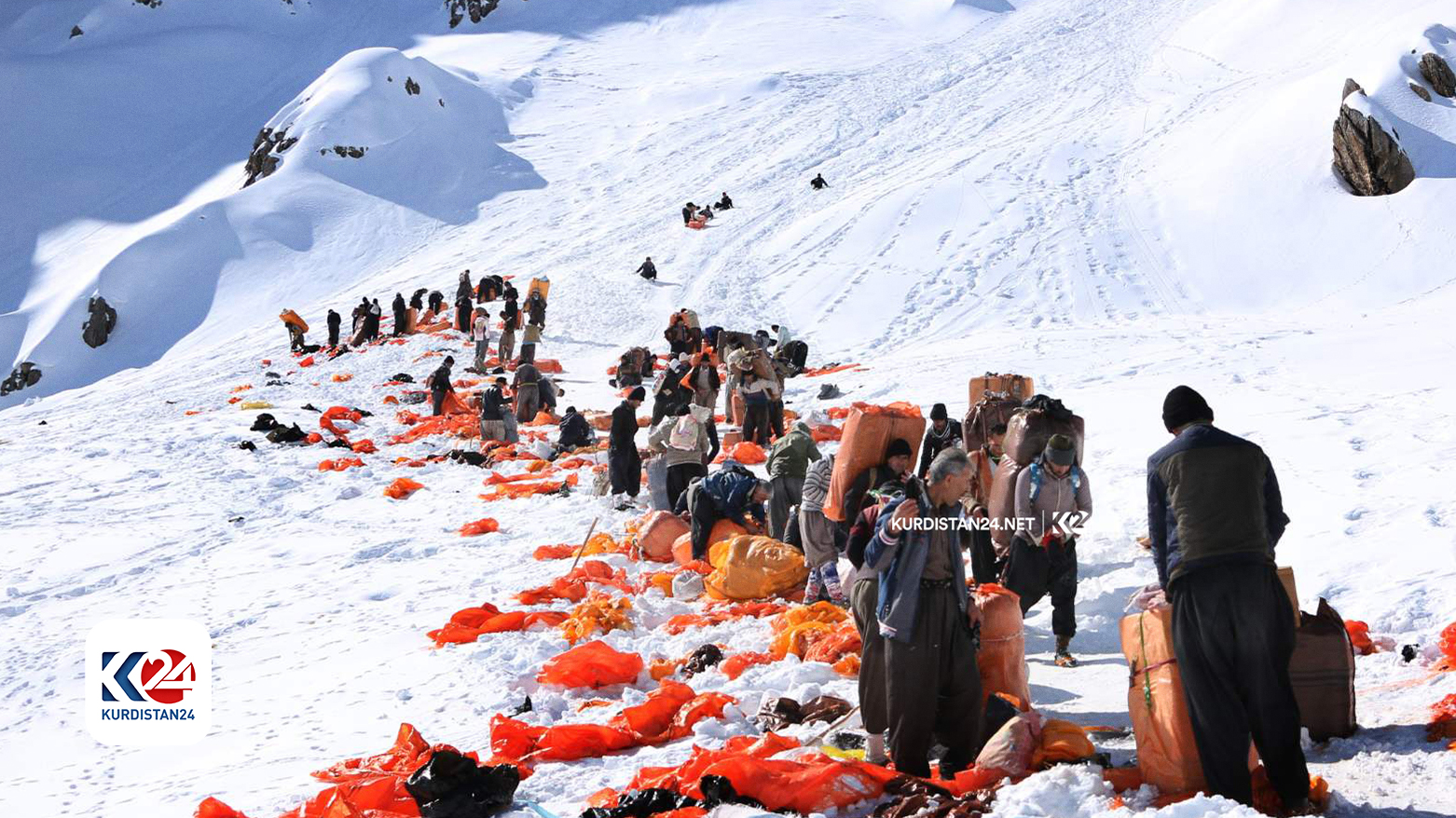Decade of danger: Iranian border security forces claim 589 Kulbar lives
According to the Human Rights Organization (Kurdpa), the year 2023, considered a bloody year for porters, saw more than 341 porters killed and injured at the hands of Iranian security forces, 22 of whom were under the age of 18.

Erbil (Kurdistan 24) - During the past 10 years, more than 589 porters, known as kulbars, were killed in the border areas of the Kurdistan Region and Iran by Iranian security forces.
The increase in the number of porters is attributed to widespread unemployment and poverty.
Kulbars, as they are referred to in Kurdish, are individuals who carry goods on their backs through rugged mountains to transport them between Iran and the Kurdistan Region.
Read More: The harrowing trek of the Kurdish Kulbar
High rates of unemployment, poverty, high prices of basic goods and food supplies, and the recent devaluation of the currency have led to an increase in the number and percentage of porters in the border areas of western provinces of Iran.
Last week alone, about 20 porters were killed by direct fire from Iranian security forces, and in the first three months of this year, more than 41 porters were killed in the border crossing areas of Kurdistan Region and Iran, with 292 others injured by direct fire from Iranian security forces.
According to the Human Rights Organization (Kurdpa), the year 2023, considered a bloody year for porters, saw more than 341 porters killed and injured at the hands of Iranian security forces, 22 of whom were under the age of 18.
According to the human rights organization Kurdpa, at least 589 porters have been killed and 1,617 others injured in the past 12 years.
According to the same source, 87% of the porters were killed or injured by direct fire from Iranian security forces. Four percent of the victims were injured as a result of beatings and violence practiced by those forces. The percentage of deaths and injuries of porters due to mine explosions was 3.5% and 1.5%, respectively, ranking third and fourth.
The border areas of Sina Governorate represent 49% of porter victims. The border areas of Nowsud in Kermanshah Province came in second place with 32%.
Qubad Karampour, a member of the Supreme Council of Provinces, said that a number of porters held university or master’s degrees, and one of them even had a master’s degree in mathematics, and he was killed while carrying a television on his back.
The porters walk for nearly 11 hours on rugged mountain roads, amidst extreme cold, and fear of attacks by Iranian security forces. Every day at work is a new opportunity for death to confront them.
The term "kulbar," as they are referred to in Kurdish, are individuals who carry goods on their backs through the rugged mountains to transport them from Iran to the Kurdistan Region or vice versa.
With no other means of livelihood, porters cut through risky mountain's roads carrying tobacco, clothes, and tea, and heavy packages, often more than one meter above their shoulders, crossing the border with the goods on their back.
They carry an average of 75 kilograms (150 pounds) on their backs as they journey across the Zagros Mountains, back and forth to make a living amidst rampant unemployment.
Although this profession is illegal because it falls within the framework of "smuggling," it has become a local practice that many lost their lives practicing it over the past years.